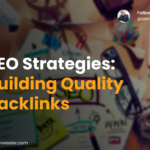In today’s fast-paced business environment, having a scalable sales strategy is crucial for sustainable growth and long-term success. A scalable strategy ensures that your sales processes can handle increasing volumes without compromising efficiency or quality. This blog explores key aspects of creating a sales strategy that supports scalability and drives significant growth, providing actionable insights for sales leaders and business owners.
Building a Strong Sales Infrastructure
In the competitive landscape of today’s market, utilizing advanced technology and tools is essential for establishing a solid sales infrastructure. The implementation of Customer Relationship Management (CRM) systems, data analytics platforms, and automated marketing tools can streamline processes, improve customer interactions, and provide critical insights into sales performance. These technologies enhance efficiency and enable sales teams to make informed, data-driven decisions, fostering growth and scalability.
Equally vital is the ongoing training and development of sales staff. Investing in comprehensive training programs ensures that your team remains current with the latest industry trends, sales strategies, and product knowledge. This not only increases their confidence and proficiency but also strengthens their ability to build meaningful client relationships, resulting in higher sales and customer satisfaction. By integrating state-of-the-art technology with continuous professional development, you can establish a dynamic and effective sales infrastructure ready for sustained growth.
Developing a Scalable Sales Process
Standardizing sales procedures is essential for maintaining consistency and quality across your sales operations. By establishing clear, repeatable processes, you ensure that every team member follows the same steps, leading to uniform customer experiences and reliable outcomes. This consistency not only enhances the professionalism of your sales team but also builds trust and credibility with clients.
Equally important is the measurement and optimization of performance. Regularly tracking key performance indicators (KPIs) allows you to identify areas for improvement and make data-driven adjustments to your sales strategies. By continuously analyzing and refining your processes, you can enhance efficiency, boost sales effectiveness, and drive sustainable growth. Standardization, combined with ongoing performance measurement and optimization, creates a scalable sales process that supports long-term success.
Expanding Your Market Reach
Effective market segmentation and targeting are crucial strategies for expanding your market reach. By dividing your market into distinct segments based on demographics, needs, or behaviors, you can tailor your sales and marketing efforts to address the specific requirements of each group. This targeted approach ensures that your messaging resonates with the right audience, increasing the likelihood of conversion and customer retention.
Leveraging partnerships and alliances is another powerful strategy for market expansion. Collaborating with complementary businesses or industry leaders can provide access to new markets, enhance your product offerings, and increase brand credibility. Strategic alliances enable you to tap into established networks and resources, accelerating market entry and driving growth. By combining precise market segmentation with strategic partnerships, you can effectively broaden your market reach and achieve sustained business growth.
Last modified: August 2, 2024



